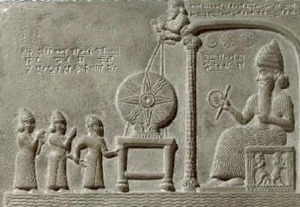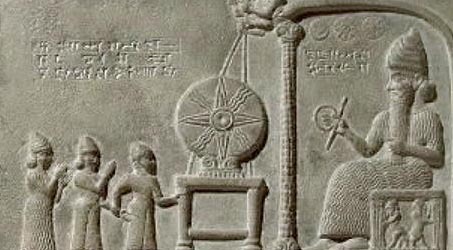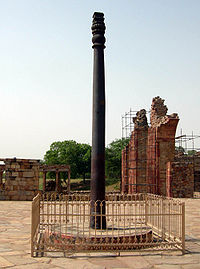 On September 11, I announced that I had finished the manuscript to The Rod of Iron, now a formal book idea at Something Or Other Publishing. Casey Kasem, who was a close radio companion of mine throughout my troubled early teenage years, summed up the approach to this manuscript with his famous byline: “Keep your feet on the ground and keep reaching for the stars.” As I wrap up the manuscript review process, I look somewhat apprehensively forward to finding out if my editor feels I’ve measured up to Casey’s mentoring.
On September 11, I announced that I had finished the manuscript to The Rod of Iron, now a formal book idea at Something Or Other Publishing. Casey Kasem, who was a close radio companion of mine throughout my troubled early teenage years, summed up the approach to this manuscript with his famous byline: “Keep your feet on the ground and keep reaching for the stars.” As I wrap up the manuscript review process, I look somewhat apprehensively forward to finding out if my editor feels I’ve measured up to Casey’s mentoring.
The very personal journey mapped out by the trilogy has been a long and winding road that, as The People of the Sign points out, predates my time on earth. Certainly I’ve spent much of my intellectual, emotional, and spiritual life mining ancient history, in particular that which was recorded in or related to the Bible. In college, for example, I joined the City of David archaeological expedition. But The Rod of Iron explores even more ancient territory.
From an archaeological perspective, the book joins the ancient temples of Göbekli Tepe to prophetic writings dating back 5,000 years. From a narrative perspective, it integrates theories that predate the planet, describing the first moments of the creation that unfolded space-time. And philosophically, it explores the fractal patterns revealed by the fabric that originated, envelops, and permeates us, to provide what I believe are new hypotheses about who and what we are.
The Rod of Iron explores how our consciousness is fulfilling our destiny to emerge as Sons of God with similar creative capacities, albeit in infinitely weaker and more limited forms. I hope you’ll click on the link and give it your vote.
Along the way — and by that I mean the path I chose when I initiated this audacious process — the trilogy that got written went well beyond what I had originally envisioned. The act of putting pen to paper forced the documentation of many questions that demanded answers. The fact that I had already published both the first volume and its sequel, The Hardness of the Heart, forced me to continue swimming in waters more profound than my inherent ability to negotiate. The burden I laid upon myself drove me repeatedly to books, articles, events, mentors, ideas, and most importantly, my knees, in a desperate search for answers that would satisfy my admittedly obsessive quest for coherence. “Truthy,” superficial answers were not satisfying to me, nor did I believe they would satisfy those who would undoubtedly challenge the evidence I was presenting. Instead, I continued to dig deeper and reach higher, drawing ever-larger circles in my efforts to solve riddle after puzzle after mystery to my own satisfaction in what one reviewer called a “relentless search for truth.”
In writing The Rod of Iron, a desire to more fully understand the purpose of the Tower of Bab-El story was but one mysterious “X Marks the Spot” starting point, or elusive destination (I wasn’t really sure which). But as the manuscript finally finished writing itself, I was astounded to find a pattern of dots connecting our modern era to that which the citizens of Bab-El sought to attain.
So to those few fans of the first two volumes and to the many others I hope will explore my work, I offer up The Rod of Iron in the hope that even critics will accept it as a fascinating and surprising end to the journey that began with The People of the Sign. It was my ambitious goal to generate, over three volumes, momentum leading to a crescendo worth the considerable effort needed to digest the vast internal and external territory covered along the way. I hope that by testing my outrageous hypotheses against historical events and modern science, and explaining intricate relationships using articles from Scientific American, Indian Legends, and official government websites, I’ve created a story as riveting as the unraveling of mysteries was to me.
It is my aspiration that after reading my trilogy you will never again view the universe, nor current events, nor the significance of your own existence, in quite the same way. The Biblical Rod of Iron was prophesied to accomplish such a major transformation. I’m not claiming that my trilogy fulfills this, but it does unyieldingly encourage its readers to take an entirely new look at the Rod of Iron prophesied to be wielded by Christ at His return. Please take a moment to cast your vote for my book and we’ll keep you updated on the progress toward publication.








